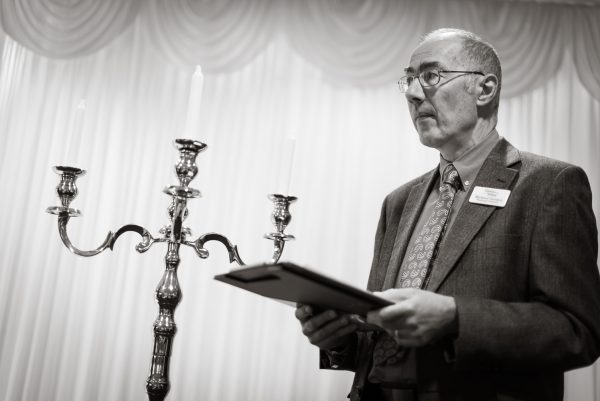
by Michael | Jun 13, 2017 | Blog
“I don’t mean to be rude, but do we actually need civil ceremonies?” The question emerged over networking when a lady I had just met found out what I did for a job.
No offence was intended, or taken. And, to some extent, she had a point.
A religious society
After all, over 50% of the UK population consider themselves Christian (according to recent research). So why would they need civil ceremonies at all? A little over 25% professed no religion. So they’ve got the option of a secular ceremony at the register office. OK, that leaves some people out, but it does cover most people.
But hold on a moment!
Religious objections
Not everyone who claims to be “religious” wants a full, standard religious ceremony, do they?
And what do you do, if you do want a religious ceremony, but are marrying someone of a different faith? Church isn’t an option, if you are Catholic and divorced. What if your church won’t accept you because you’re gay? And what if a religious service doesn’t really rock your boat, but do want a blessing or a prayer (mainly to keep parents happy, say)?
The secular option
In all those cases, when the Church won’t provide what you want, you have to turn to the Register Office. There they will read out the standard, necessary words to make your marriage legal. But, unfortunately, the ceremony must be totally secular (and impersonal). It can be a bit of a conveyor-belt operation.
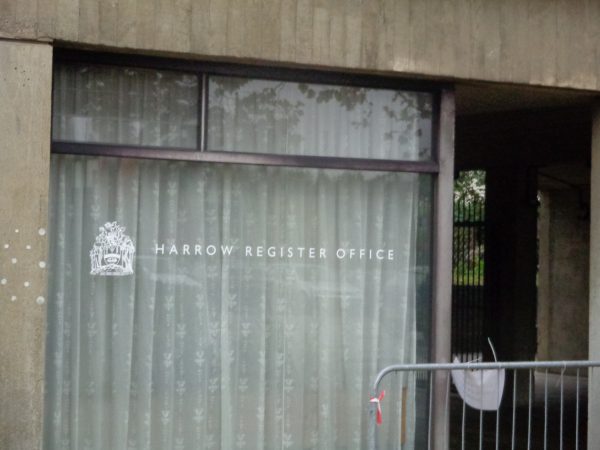
In surroundings that may not be much to write home about!
So, I hear you ask, is there another option?
A real choice
Indeed. As I explained to the lady, that is where a civil celebrant comes into his or her own.
The assets of a civil celebrant are that they build a ceremony from scratch. A good celebrant takes the time to work with the clients to offer ideas and also guidance about what is possible and might work. He will ask questions (and supply answers too), so that he can build up a full picture of what the couple wants. He will then write or compile a ceremony that reflects their personalities and beliefs, and is everything they want it to be.
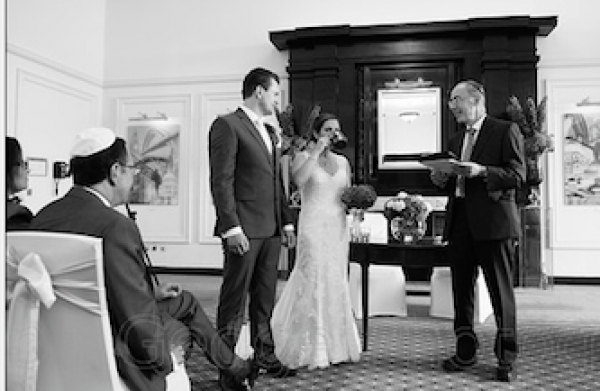
Photo courtesy of Philippa Gedge
Not only will the ceremony be personalised and unique but it will tick the other box: it can be as religious as the couple want it to be.
It should be pointed out that civil celebrants are not (yet) licensed to conduct legal marriages, so the registrar ceremony is still compulsory. However, once the legal formalities are over, you can enjoy a fabulous meaningful ceremony that will be memorable for all the right reasons!
I believe, after our conversation, that that lady understood my role a bit better – and didn’t regret her question too much!
Of course, if any reader wants to follow up with me, I’d be delighted to explain more. Please feel free!
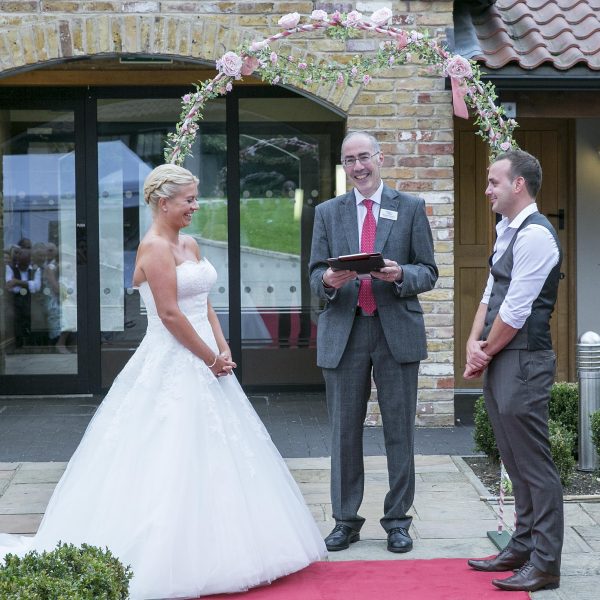
by Michael | Jun 6, 2017 | Blog
You may have seen photos on my website of one particular wedding where I officiated. They bring back lovely memories for me (and, hopefully, for the couple concerned!). I thought I’d share the story of their wedding with you.
Lucy and Dave had already married on Skiathos in front of a few close friends and relatives. They wanted to share their happiness with their wider circle. So a wedding blessing was fixed for a Friday in August – an outside ceremony near a converted barn in the Enfield/Cheshunt area just north of London.
It had been quite a hot day, and the 5 p.m. start avoided the worst of the heat. Unfortunately, although almost everybody was ready then, that wasn’t the time the ceremony actually started. News filtered through that the best man was stuck in traffic on the M25 motorway. And before anybody asks why he hadn’t left home sooner, the fact was that he had actually been at a job interview (successful!), and had been unable to get away sooner!
So a few drinks were consumed and we all settled down to wait. While Lucy stayed secreted with her entourage, Dave was clearly a bit nervous, and this delay didn’t help him.
Another consequence of the delay was that the weather started to turn very noticeably.
However, an hour or so later than scheduled, with the best man refreshed and ready, Dave and I were positioned under a lovely floral arch. Lucy made her entrance up the red carpet leading to us. What a picture! She was radiant, resplendent, confident that all eyes were fixed admiringly upon her and her approach was stately.
The service of blessing began. After my welcome, and mention of absent friends, I talked briefly about Lucy and Dave’s story that nearly never happened (as Dave had chickened out of popping the question when the time seemed right). Anyway, the next time the opportunity arose, in Warwick Castle, he pretended to offer Lucy a chocolate bar; when she unwrapped it, she found a ring.
The ceremony continued, but about this time, a wasp decided to get involved, and it buzzed around the three of us very persistently. This didn’t help Dave’s nerves, or, if I’m honest, mine. Lucy was seemingly imperturbable, though.
This being Britain, “the show had to go on”, and as we proceeded to readings about love and then words of wisdom about marriage. This seemed to interest the wasp rather less. Unfortunately, there was a practical reason for this, which was that the heavens decided that this would be a good time to open!
As the celebrant, I felt that, although we still had a few minutes left ahead of us, we could hardly stop the ceremony. So we moved on to the significance of the rings. As we three were getting decidedly damp (most of the guests had fled for some nearby shelter), an enterprising bright spark picked up a table parasol, opened it and brought it up to the front so that Lucy (though not we men-folk) could be protected. This caused a good deal of merriment, and helped Dave to relax.
As the shower passed, I recited the lovely Apache (Navajo) wedding blessing, with its rather ironic (in the event) beginning:
“Now you will feel no rain, for each of you will be a shelter for the other. Now you will feel no cold, for each of you will be warmth to the other. Now there will be no loneliness, for each of you will be a companion to the other. Now you are two persons, but there is only one life before you. Go now to your dwelling place to enter the days of your togetherness. May beauty surround you both in the journey ahead and through all the years. May happiness be your companion, and may your days together be good and long upon the earth.”
Lucy and Dave had been adamant when we were planning the ceremony that there should be some light-hearted elements. So before we ended, there was the pagan “Jumping the Broom” ceremony. I explained that Lucy and Dave would together jump over the broom to symbolise a new beginning, a welcoming of the new – sweeping away old cares and worries. “This represents entering into a new life of husband and wife. The wood represents the strength of the commitment in the marriage. The leap symbolises joyfully taking the leap into married life together.“
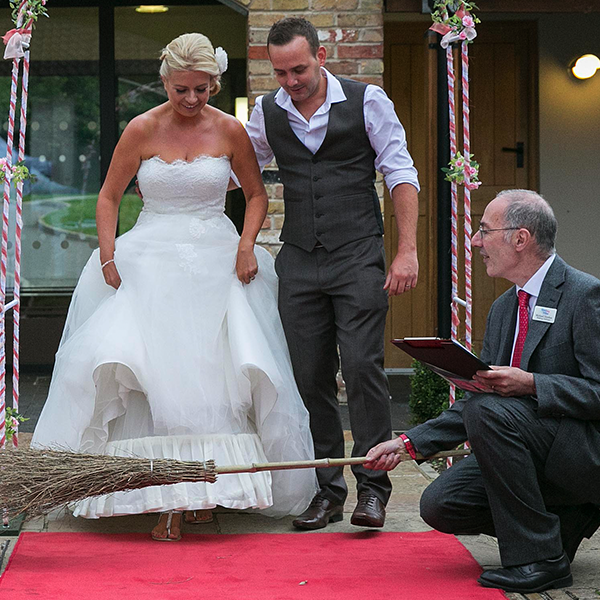
I then held the broom some two feet above the ground and invited Lucy to hurdle it in her dress. To the onlookers’ delight, she looked aghast, as was the intention. Of course, I then lowered it to a few inches above the ground!
It was a lovely, warm occasion for a delightful couple; everybody had a smile on their face, and there’s an even happier end to the story: twins for the pair a year or so later!
Wonderful memories, indeed!
by Michael | May 30, 2017 | Blog
Congratulations, if you’ve just got married! But remember that, once the excitement dies down – and the honeymoon becomes a memory – you need to focus on your marriage. How are you going to make it work?
Words
One way is to watch what you say to each other. Sticks and stones, and all that – but words really can hurt. They can be misunderstood. They can damage relationships.
Here are a few powerful words that should be used with great caution:
- Never This is so final. It can give a message that your spouse is not good enough and will never be so. The situation will not improve. Use of this word does not imply listening, compromising or sympathy.
- Always The opposite of “never”, it has similar connotations. It suggests that your spouse is wrong (and therefore that you are right) – end of story. Again, it does not suggest two-way communication or empathy.
- I Obviously, everybody needs to use this word, but, almost by definition, you are taking a selfish standpoint, and care needs to be taken as a consequence.
- You Again, a word you are likely to need in order to produce a sentence. The focus is on the other person, but the effect depends on how you use it. Beware of making it accusatory or aggressive (finger-pointing).
- But (or however, or although) Remember that these negate whatever has preceded them. Positive becomes negative. It does not build trust, intimacy or credibility.
- Swearing This often means that you have lost control – possibly, because of frustration or the realisation that you are in the wrong. Name-calling will only cause upset, especially on a regular basis. Starting from lack of respect, the path to a relationship breakdown is relatively short.
- Divorce This should not be spoken as a threat or a weapon. Nor should you accuse your spouse of destroying the marriage. This won’t resolve any conflict – indeed, it is more likely to exacerbate it.
Resolution
What is far more important and effective is to be prepared to communicate with your spouse. Invite openness. Listen to problems, and try to resolve them, possibly by use of compromise. Ask questions and try and understand. Often a problem is caused by simple misunderstanding, and can be solved easily.
Speaking (and behaving) with respect and patience is not always that easy, especially when under pressure, but ranting and raving will solve nothing. If necessary, explain calmly why you may feel irritated by a particular act or behaviour.
Counselling, or even divorce, should be last resorts. It may not always be easy, but the responsibility for making marriage work is down to both of you. So communicate before things get bad, and respect each other.

by Michael | May 22, 2017 | Blog
Making a wedding speech (or any kind of speech, for that matter) has frequently been described as worse than death.
It doesn’t have to be that way.
As a professional presenter and public speaker, I want you to feel as confident about presenting yourself as I do when I am conducting a ceremony.
Whether it’s a business presentation or a Best Man speech at a wedding, it’s understandable that public speaking can be a major challenge for many people.
I want to offer you ten hints that can make that experience far less stressful and far more rewarding. They won’t necessarily solve all your issues about public speaking, but they will set you on the path to the confidence you need.
Content
- Be brief, rather than wordy, and be relevant. Don’t go off on shaggy dog stories or sagas that mean nothing to most of the guests
- Humour is good (provided you have decent material and timing!). Ensure you are not controversial, rude, or obscene. Avoid religion, politics and personal insults, as a general rule
- Be clear in your thinking and delivery
Presentation
- Practise reading your speech aloud beforehand (preferably to someone prepared to criticise you!). Become familiar with the finished article so that you don’t have to read every word
- Transfer your script in note form or (better) bullet point headings onto (numbered!) 5” x 3” cards
- Before you stand up, settle your nerves with a couple of deep breaths
- As you begin, look at your audience and smile (if you can!)
- Ensure you speak audibly and clearly and keep a check on the speed of your delivery. A microphone may be a blessing, or not. Be aware: speak into it, but avoid deafening everyone.
- Try and modulate your voice (and volume), so that it’s not monotonous and sleep-inducing
- Wherever possible, make eye contact with your audience. Hold your cue cards at about chin height (but not so near as to block the sound from your mouth!). (See the top picture.)
If you can take all this on board, you will be well on your way. There’s no substitute for good material, of course, but presenting it effectively can make all the difference.
A wedding speech is really not as daunting as it might seem. Put in the preparation and you can then aim to relax a bit. (Avoid alcohol, at least, until afterwards!) and do your best. Be assured also that you’ll be supported by the goodwill and forbearance of the guests.
You can do it!
You might even enjoy yourself …!
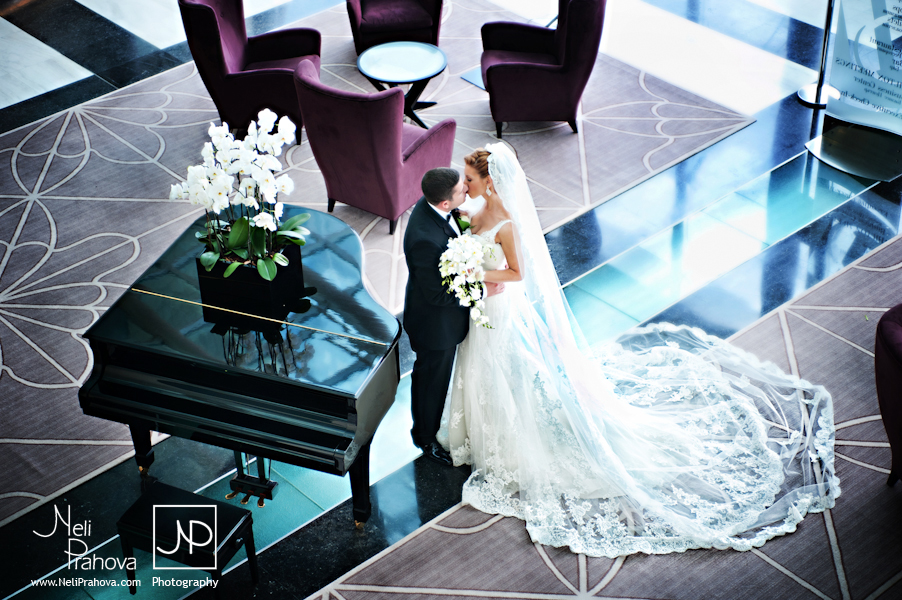
by Michael | May 15, 2017 | Blog
Wedding music is a huge area, and oh, so important.
Music touches emotions. It is atmospheric and can set the tone for the whole ceremony. As a celebrant, I am quite often asked if I have any thoughts about music (even for funerals, by the way). I certainly have my opinions, but it really goes down to what sort of ceremony you will be having (ie the tone, degree of formality etc.) and the sort of music you actually like.
So plenty of generalising and sitting on the fence for Michael now!
When do you want music?
There may be music in the middle of the service, but most commonly you expect it at the beginning and at the end. To be more precise, for maybe a quarter of an hour before the bride arrives, and then for the processional. If there is certificate signing at the end, music could be played, and it’s almost obligatory for the recessional.
Live or recorded?
Recorded music critically depends on the apparatus functioning correctly. Things can go wrong for live musicians too, of course, but they are probably better placed to sort things out. Live performers may well cost more than, say, the DJ who is already going to do your reception. However, I feel that live music has the edge when it comes to conjuring up an atmosphere.
Traditional or Modern?
If you are having a big, traditional ceremony, then you may well opt for the trusted works, like Mendelssohn’s “Wedding March” or Pachelbel’s “Canon”. They are absolutely fine, but you don’t need to raid the classical repertoire for suitable music.
Pop songs or ethnic music have their place at many weddings. It all depends on the tone, of course. Youngsters may appreciate Adele’s “Make You Feel My Love”, or “Circle of Life” or Bruno Mars’ “Just the Way you are “.
Choice
The other obvious element for a couple to consider is their own personal taste. They need to agree on whatever is to be played, and they need actually to like the music! (There’s little point choosing it, otherwise.) If it’s a personalised ceremony, then the music can reflect the personalities of the pair.
However, think carefully before you organise loud rock music blasting out to a room full of middle-aged aunties! A little moderation may work wonders!
It possibly doesn’t need saying that, while the entry music can be reflective, the recessional should be upbeat.
It’s worthwhile carefully weighing up the various pros and cons, and deciding what matters to you. Once you know the degree of formality you are expecting, choose music that you love or that means something to both of you. Then you’ll be well on the way to inspiring a wonderful atmosphere for your big day.
And that is precisely what the right music can provide.
For more advice, feel free to contact Michael.
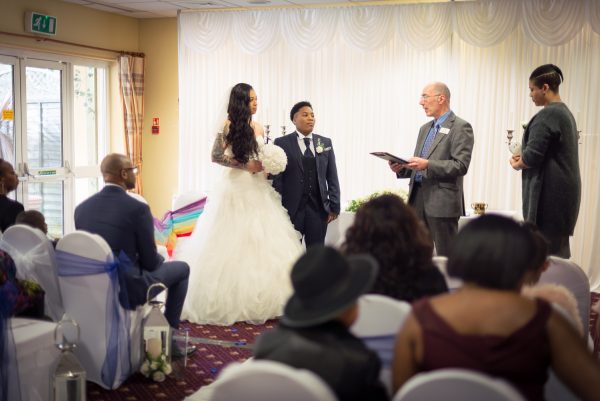
by Michael | May 8, 2017 | Blog
Having recently conducted a wonderful same-sex wedding, I started doing a bit of mulling. Presumably, there are major differences between heterosexual and same-sex ceremonies?
Dress
In this particular case, as you can see, one spouse wore a white wedding dress; her partner wore a lounge suit and tie. Obviously, formality was what the pair wanted, and that fitted the bill.

So one tick on the list of similarities straight away.
Family
Probably not so simple. What if the family opposes your marriage? Especially if it’s same-sex.
There are plenty of examples, however, of obstacles being placed in the way of heterosexual couples, so this is a similarity, rather than a difference.
Incidentally, a possible solution to this problem is to use diplomacy. You may be able to encourage the parent (or whoever) to feel more positive by inviting them to participate in some way in the ceremony, for example, by doing a reading. Or you might assure them that you will (still) visit them as regularly as before at weekends/holidays etc.
Of course, you should get them to meet and get to know your partner, preferably informally. If the charm offensive doesn’t work, then think about asking your officiant to have a word.
If you want a religious (or part-religious) ceremony (or your parent does), then you can always use a civil celebrant like myself.
So not that different, whether the wedding is same-sex or heterosexual.
Suppliers
A few venues may have problems with gay ceremonies, but decreasingly so. In the same way, some suppliers may not want to work with a same-sex couple. You may recall that an intransigent anti-gay cake-maker in America was prominent in the news a year or two back. The fact that that was a big news item highlights the rarity of such an occurrence.
Problem areas
The only area that may cause a problem in a single-sex ceremony, as opposed to a heterosexual one, lies in vocabulary. Is the couple to be referred to at the end as “Mr and Mr Jones” or “Mrs and Mrs Smith”?
It’s possible that some of the readings will need a bit of rewording, but essentially the same-sex and heterosexual ceremony should turn out to be much the same.
The celebrant can always alternate the names, so it isn’t always the same person being addressed or referred to first.
As we have seen, the differences are actually not so great between heterosexual and same-sex ceremonies. I hope that will reassure you that absolutely nobody needs to be put off from arranging a same-sex ceremony!
Don’t forget that I can help out! Just send me an e-mail or give me a call.







